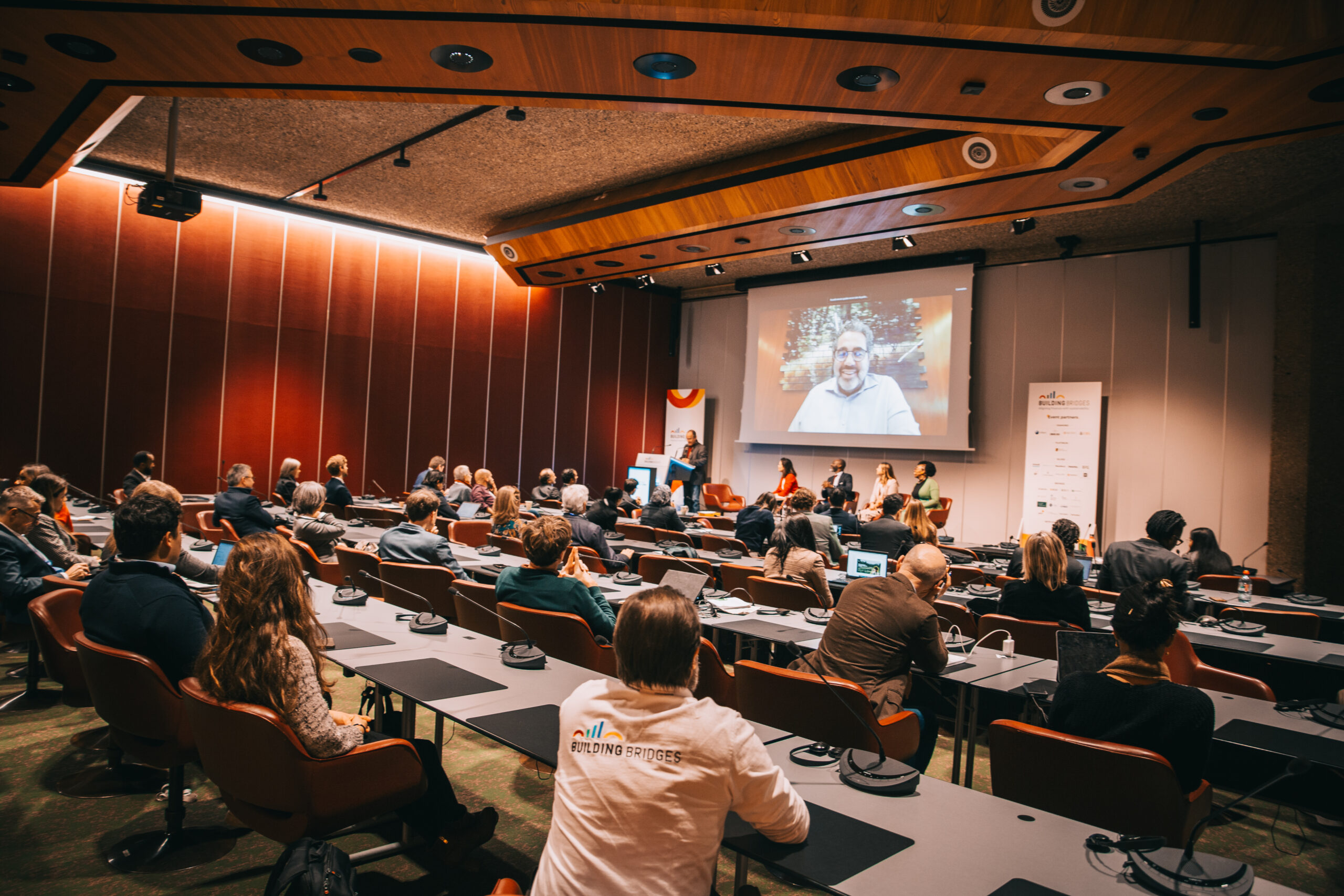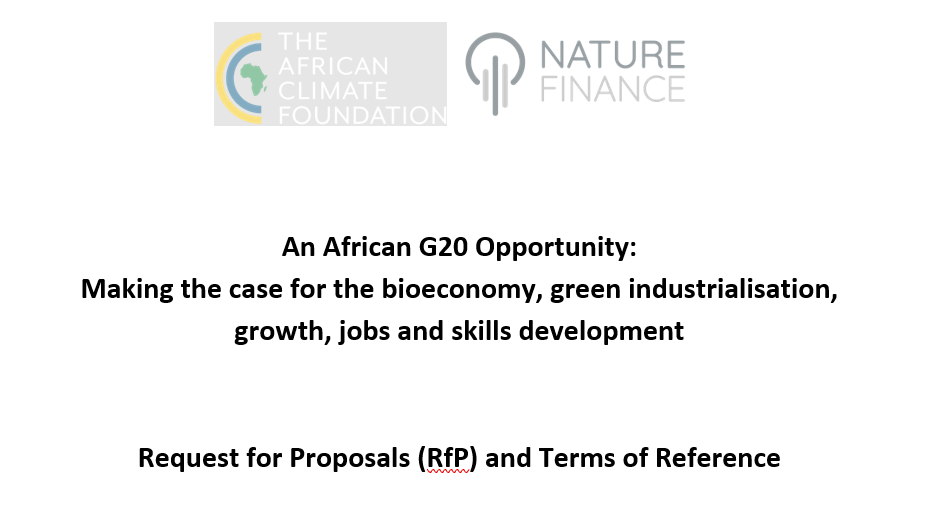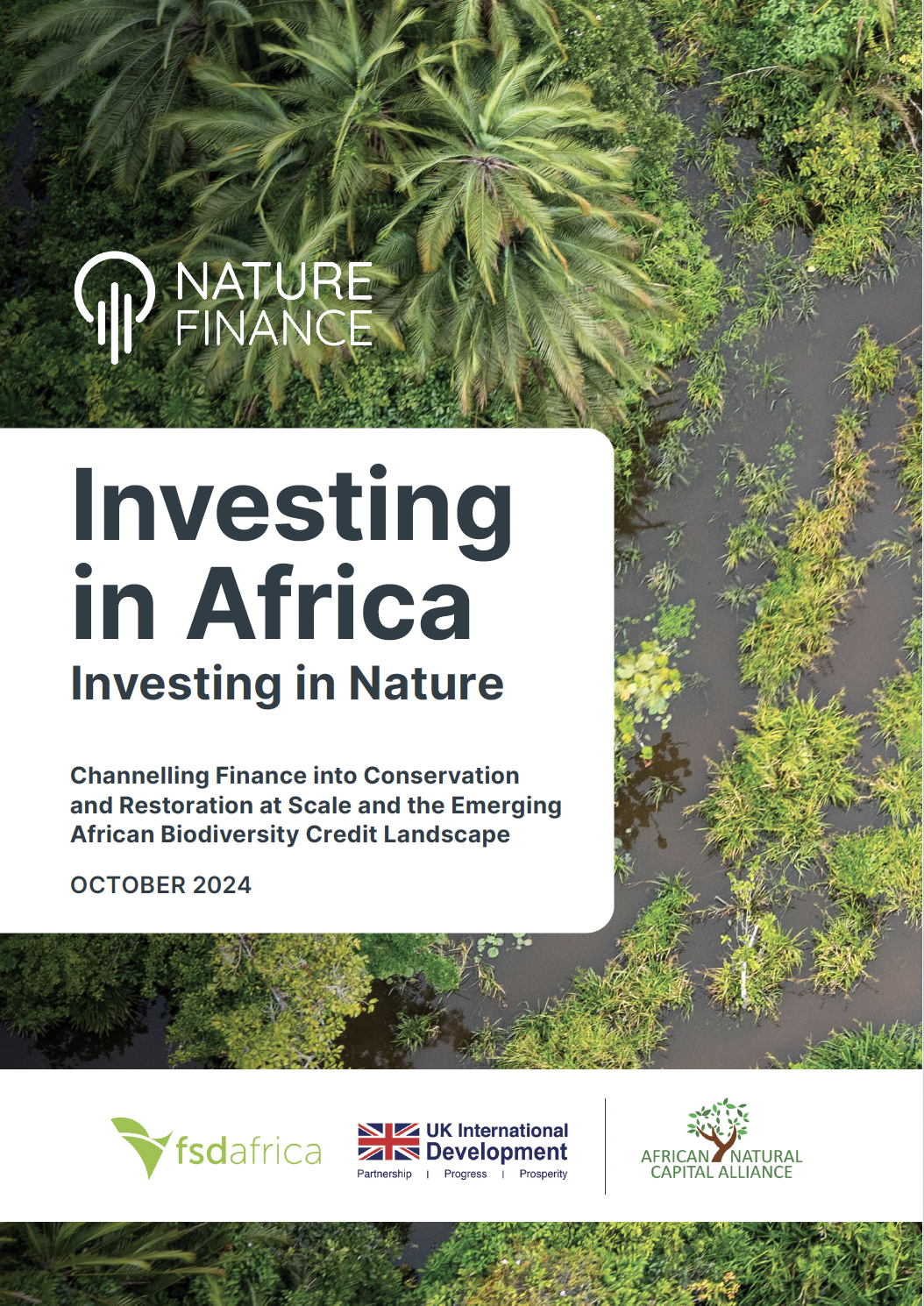On September 12, NatureFinance and partners co-hosted a pivotal event in Rio de Janeiro’s Botanical Garden titled “Financing a Positive Bioeconomy for Climate, Nature, and People.” The event brought together 150 participants, including G20 Bioeconomy Initiative (GIB) negotiators, policymakers, multilateral banks, businesses, finance sector representatives, and civil society to explore innovative financial strategies for a just transition.
G20’s Historic Milestone
This gathering saw the G20’s approval of 10 High-Level Principles on Bioeconomy, marking a significant milestone. Representing 87% of global GDP and 80% of emissions, the G20’s principles emphasize inclusion, equity, and rights for all, including Indigenous peoples, while promoting gender equality, biodiversity conservation, sustainable business models, and fair benefit-sharing from genetic resources.
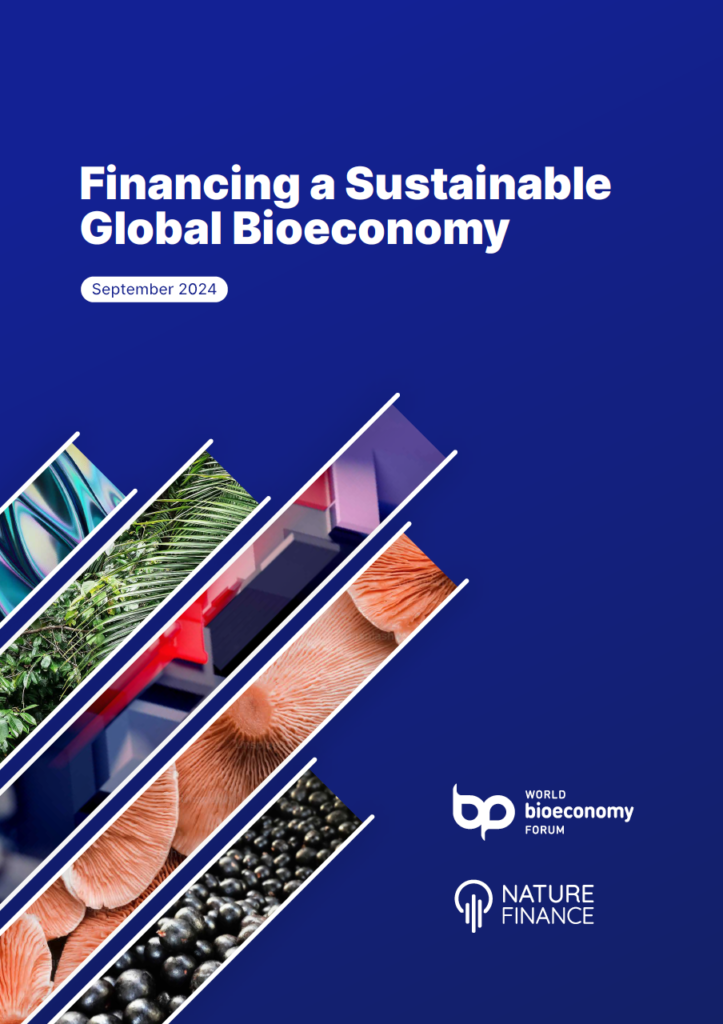
Launch of Pioneering Study
A key highlight was the launch of Financing a Sustainable Global Bioeconomy, a study by NatureFinance and the World Bioeconomy Forum, with the support of dozens of civil society organisations*. This landscape analysis explores the current and prospective relationship between finance and the bioeconomy and was shared at the official GIB meeting earlier in the week.
Morning Panels: Opportunities and Risks
Key Insights from the Event:
–Collaboration is Essential: Global collaboration is crucial for advancing a sustainable bioeconomy, amplifying positive impacts, and addressing risks. Tailored financing must account for the diverse needs of various sectors, from Amazonian farmers to global pharmaceutical companies.
–Leveraging Existing Mechanisms: Existing instruments like venture capital, green bonds, sustainability-linked loans, nature credits, and nature-based solution funds can be adapted to drive the bioeconomy forward.
–Unified Principles for Progress: Brazilian government representatives emphasized the importance of the GIB high-level principles in unlocking the bioeconomy on both national and global levels. These principles are expected to boost international trade, cooperation, and scientific collaboration.
–Next Steps for G20: As South Africa prepares to host the G20 in 2025, it plans to prioritize bioeconomy interventions, focusing on scaling, logistics, and inclusion of traditional communities. A global platform for these initiatives is essential to their success.
–Agribusiness and Sustainability: Discussions around Brazilian agribusiness highlighted the need to shift from a traditional risk-return model to one that incorporates sustainability. This shift requires new metrics, a taxonomy, and careful consideration of environmental risks.
–Indigenous Knowledge and Empowerment: The role of Indigenous and traditional knowledge in bioeconomic practices was underscored. Community-led projects are key to developing sustainable solutions that align with local realities.
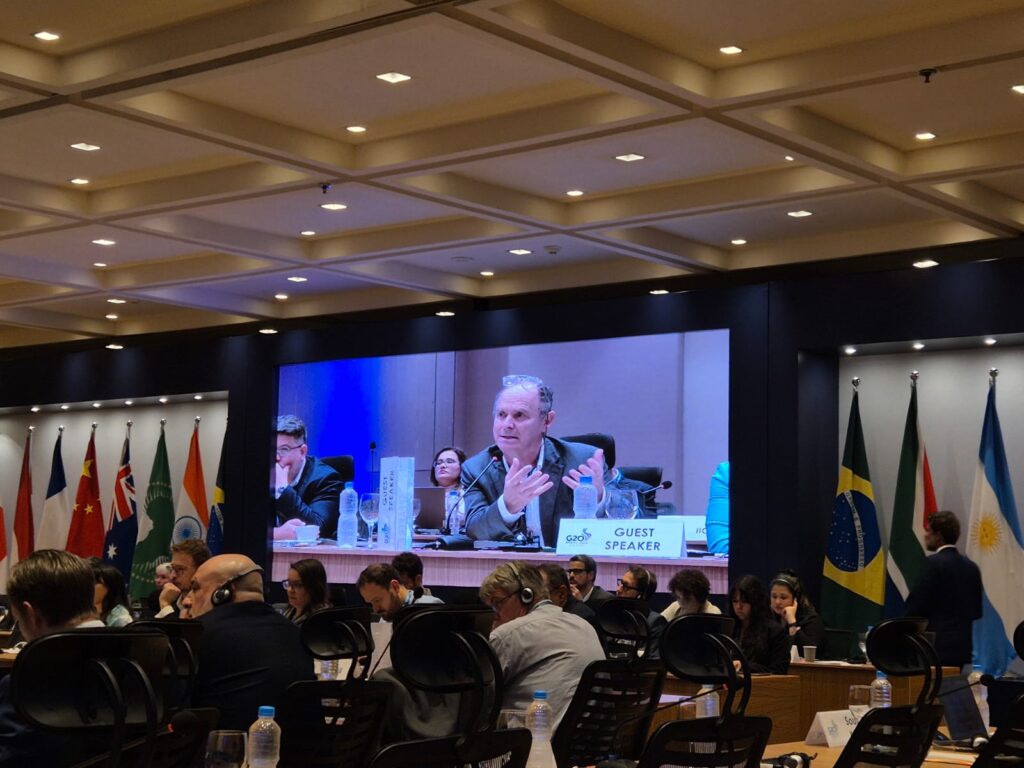
Simon Zadek speaking about financing the bioeconomy during the G20 Initiative on Bioeconomy meeting (9/9).
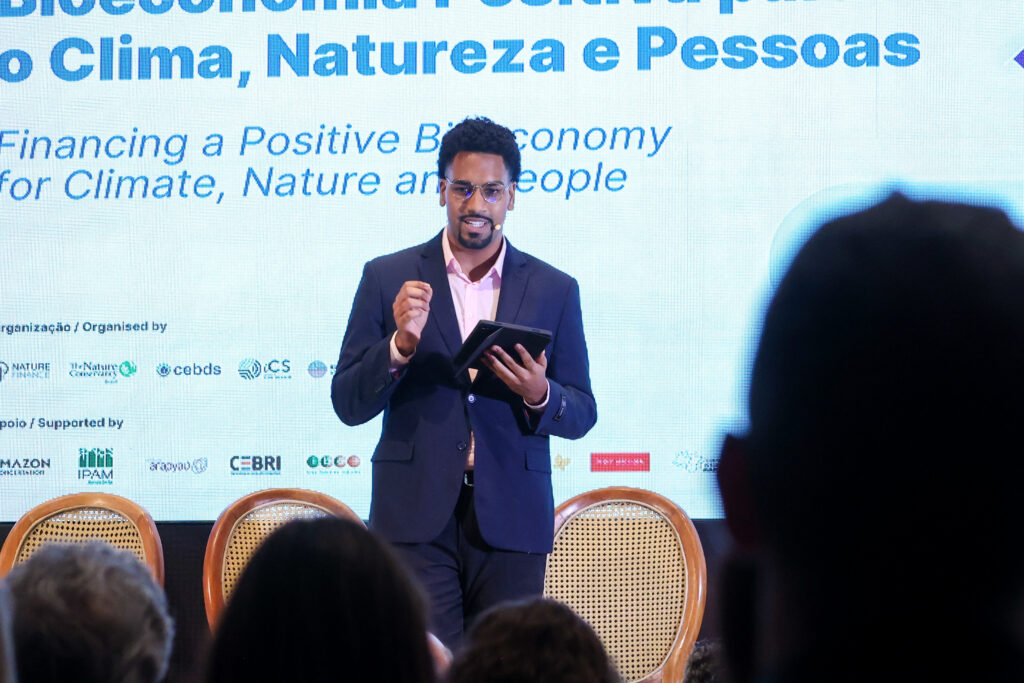
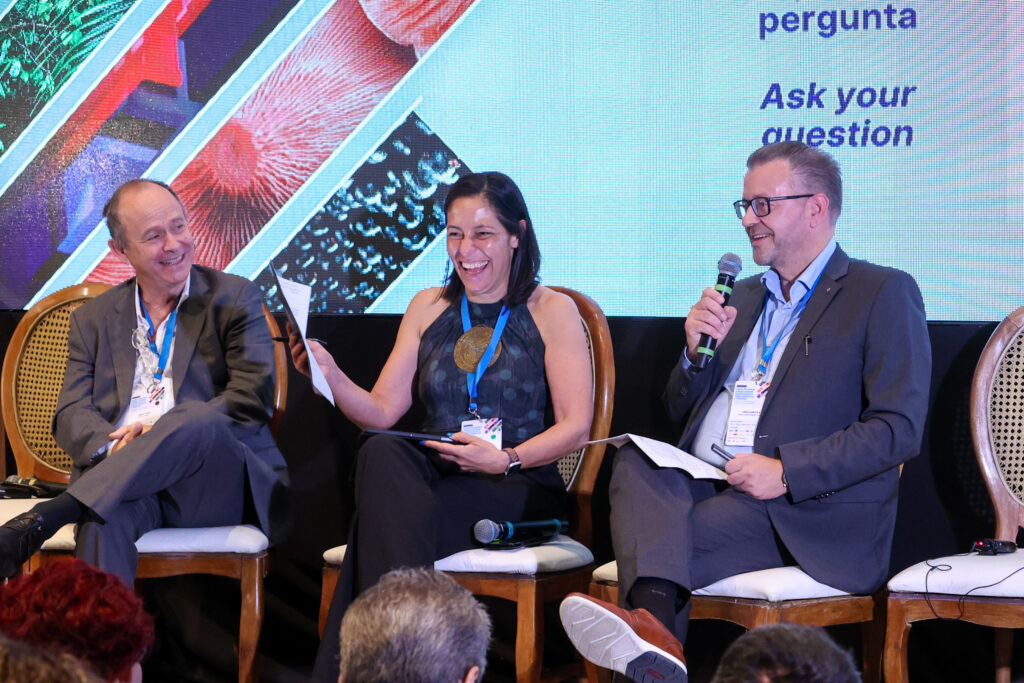
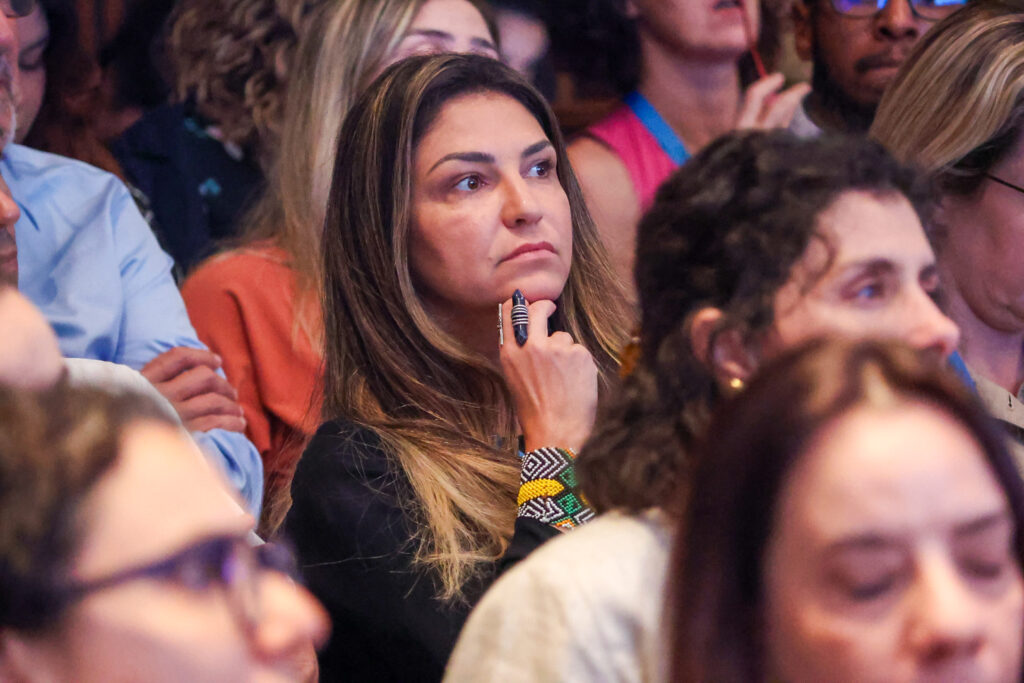
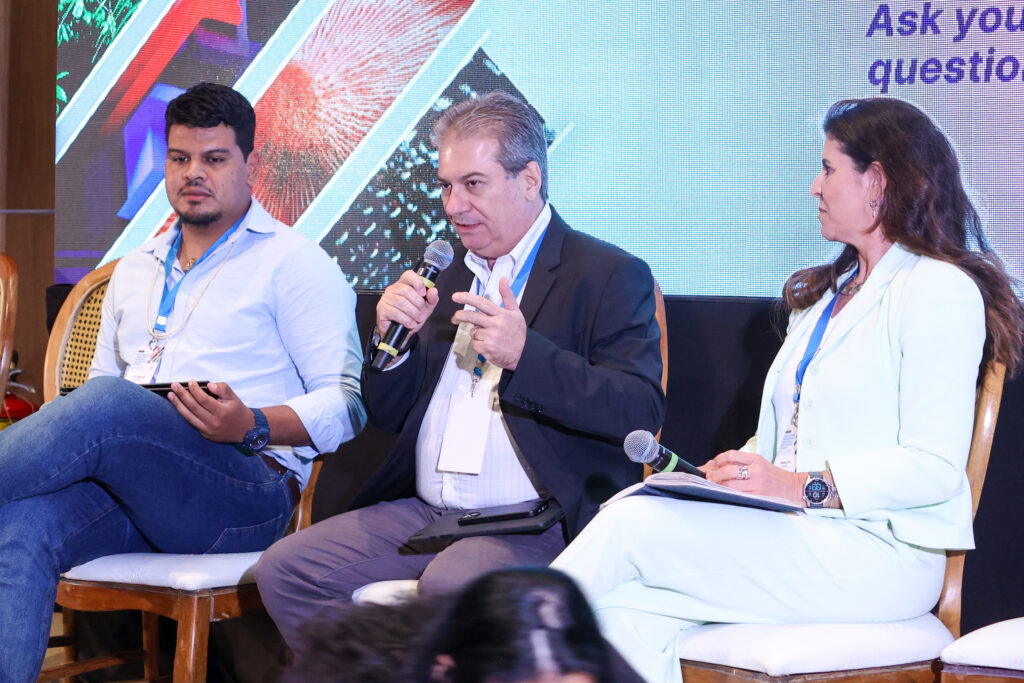
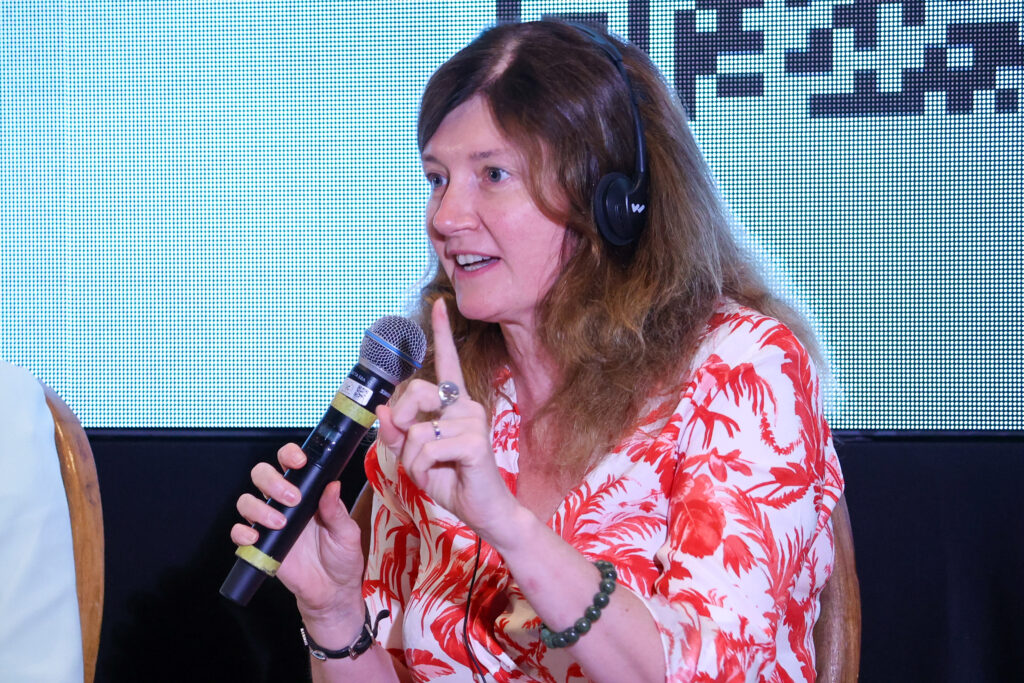
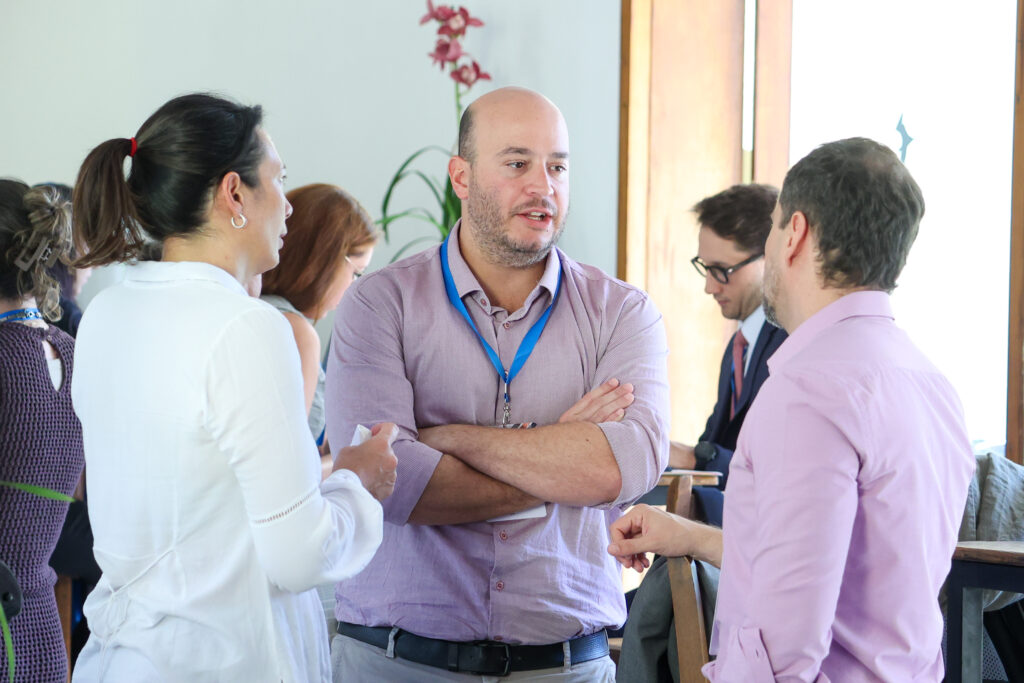
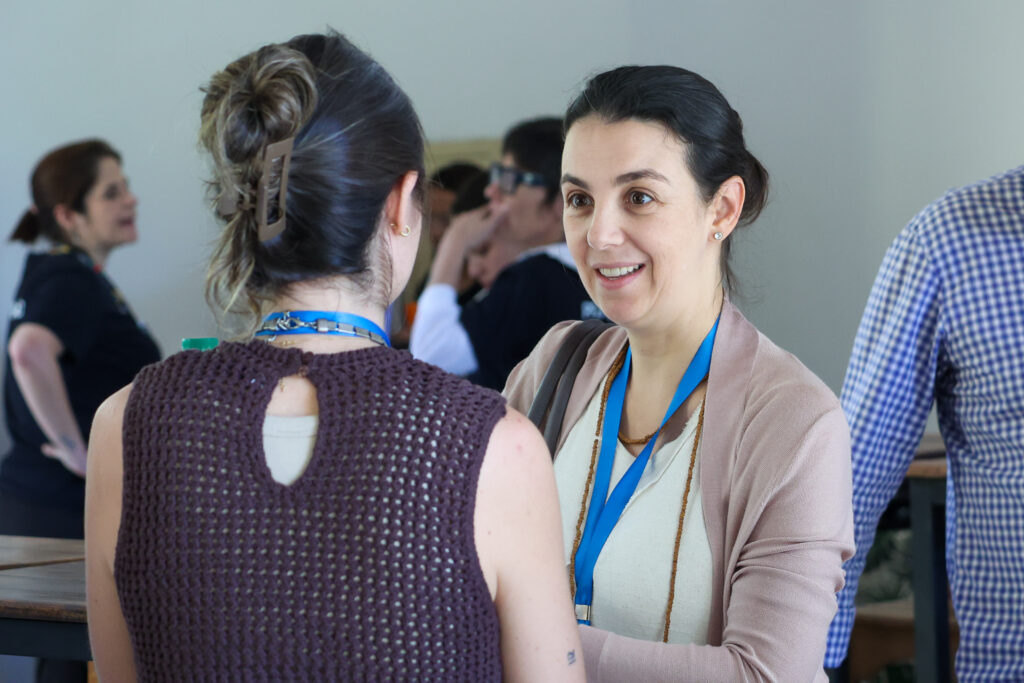
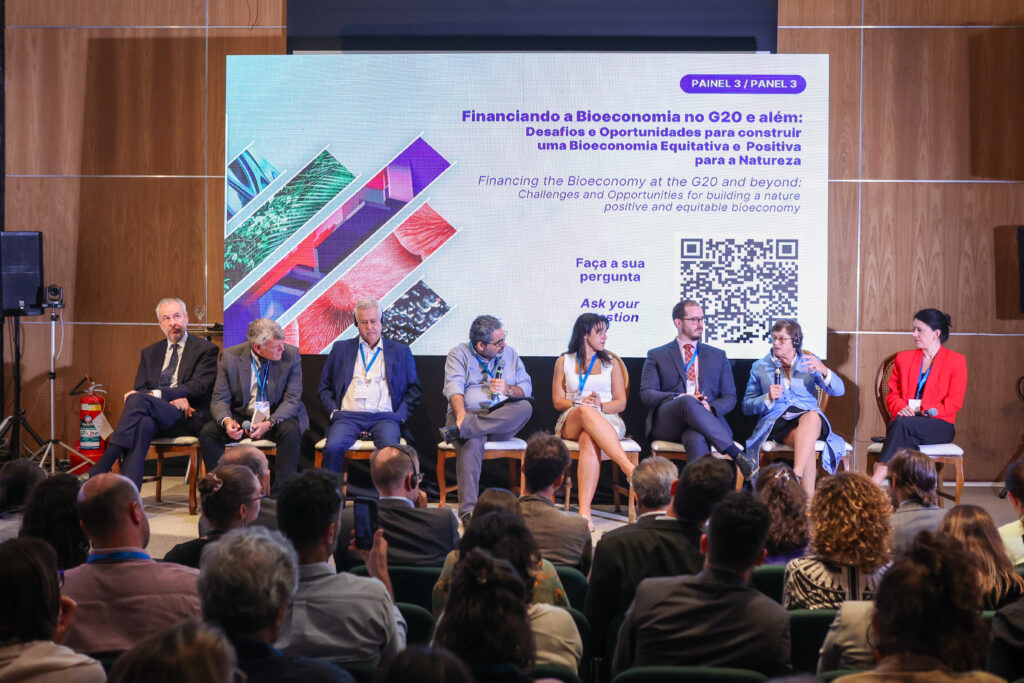
Ben Durham,
Rodrigo Rollemberg,
Marcelo Furtado,
Carina Pimenta, Leandro Pedron,
Dame Amelia Fawcett,
Cristina Reis.
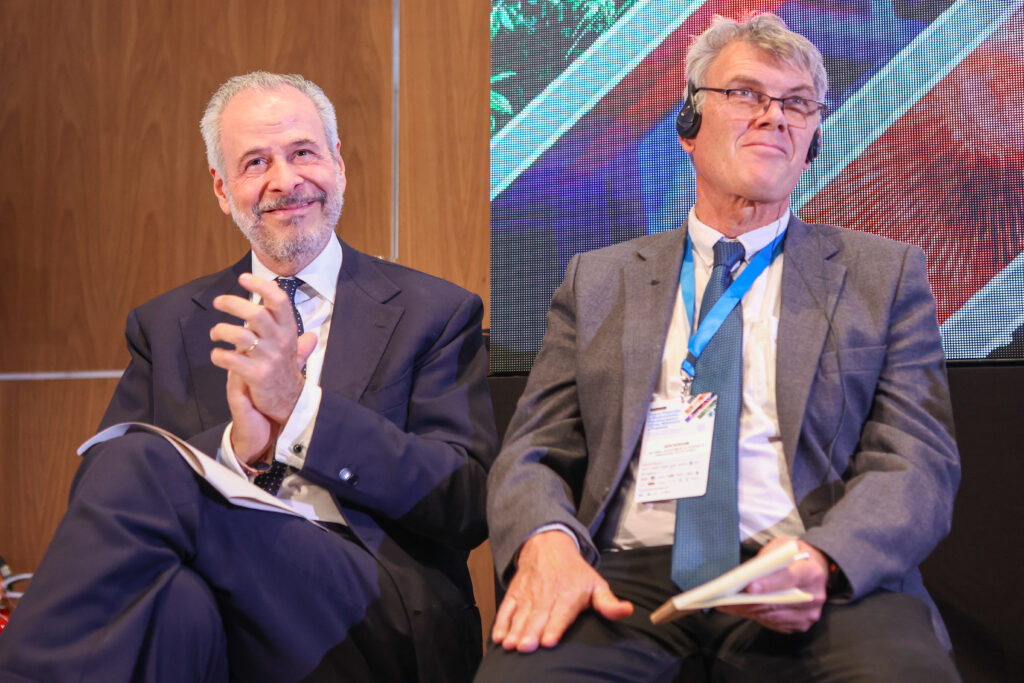
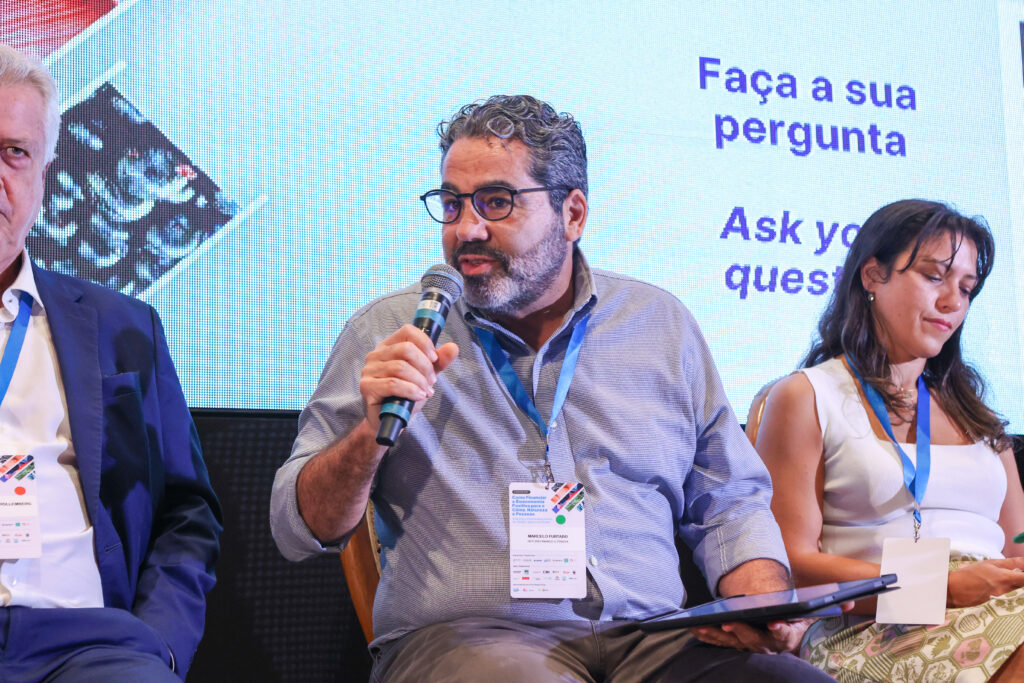
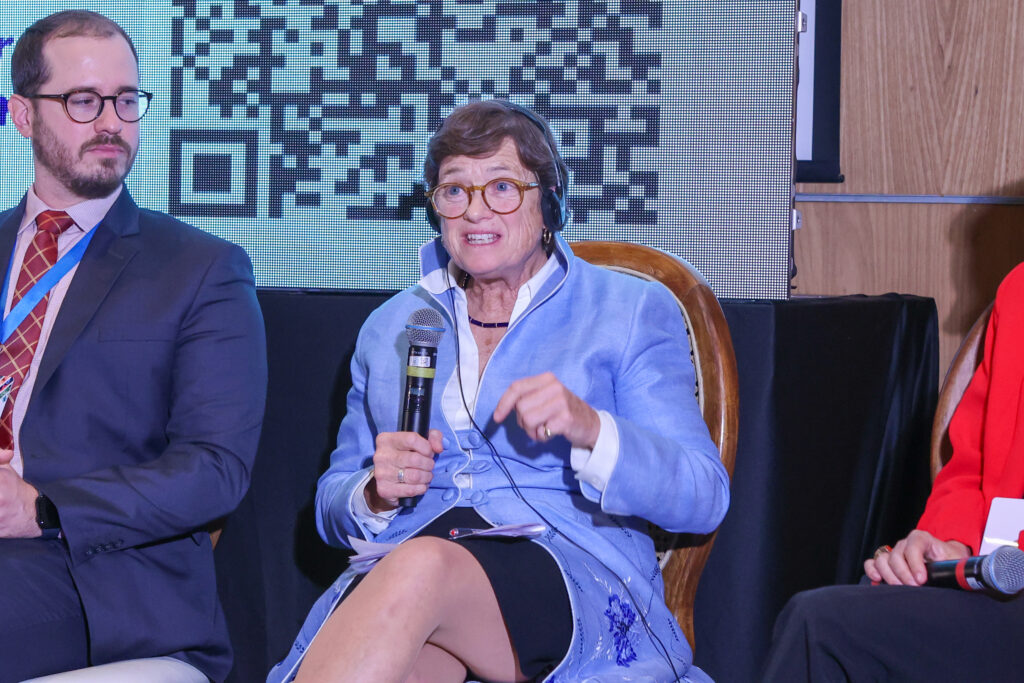
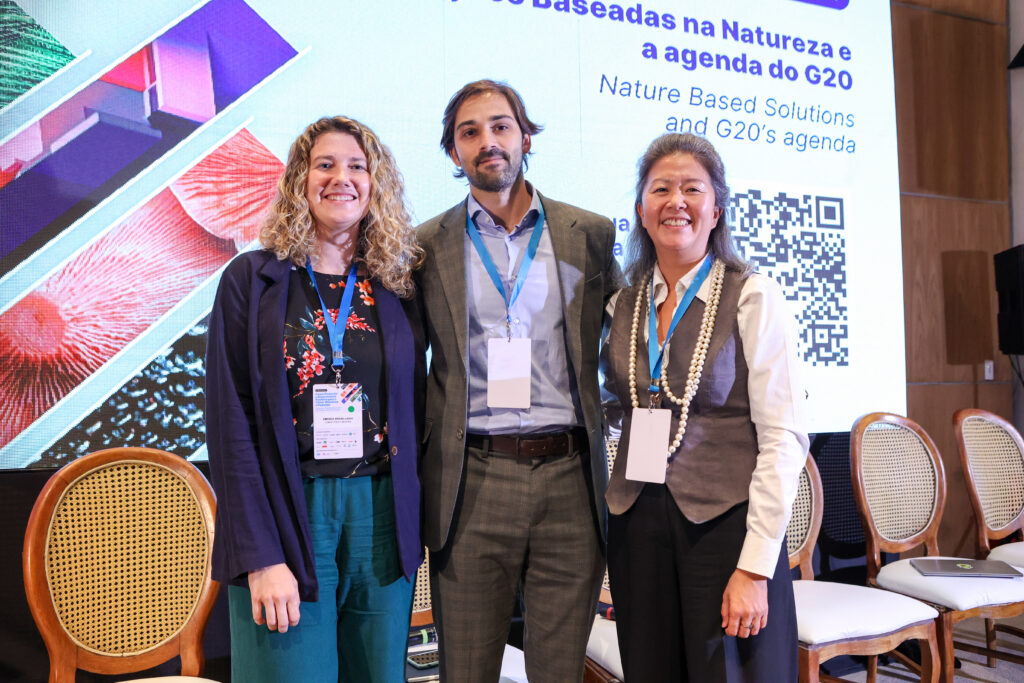
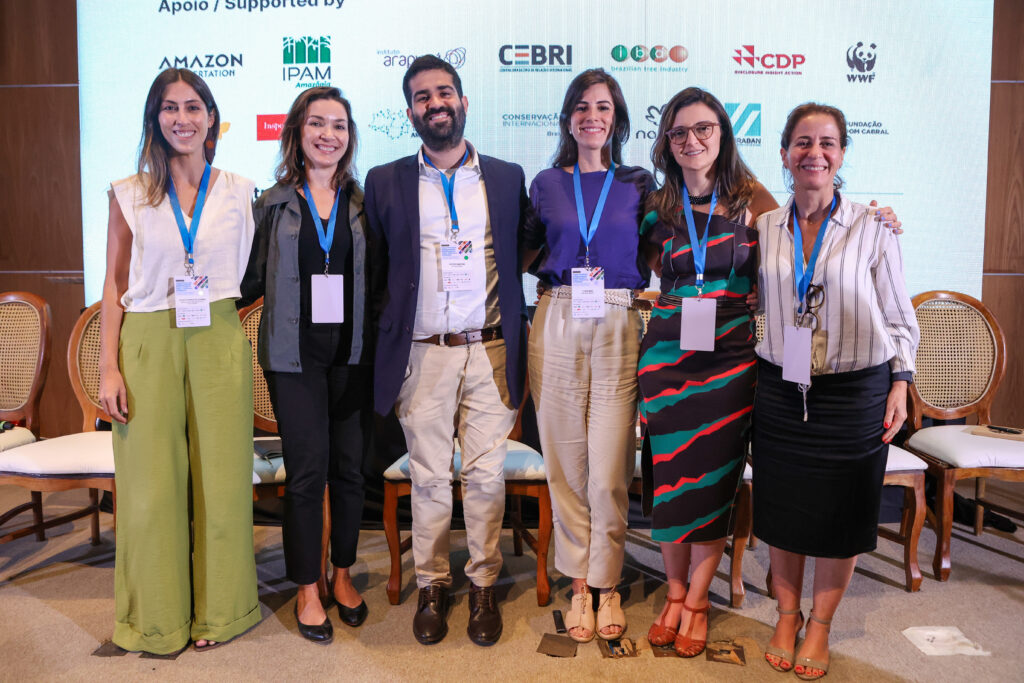
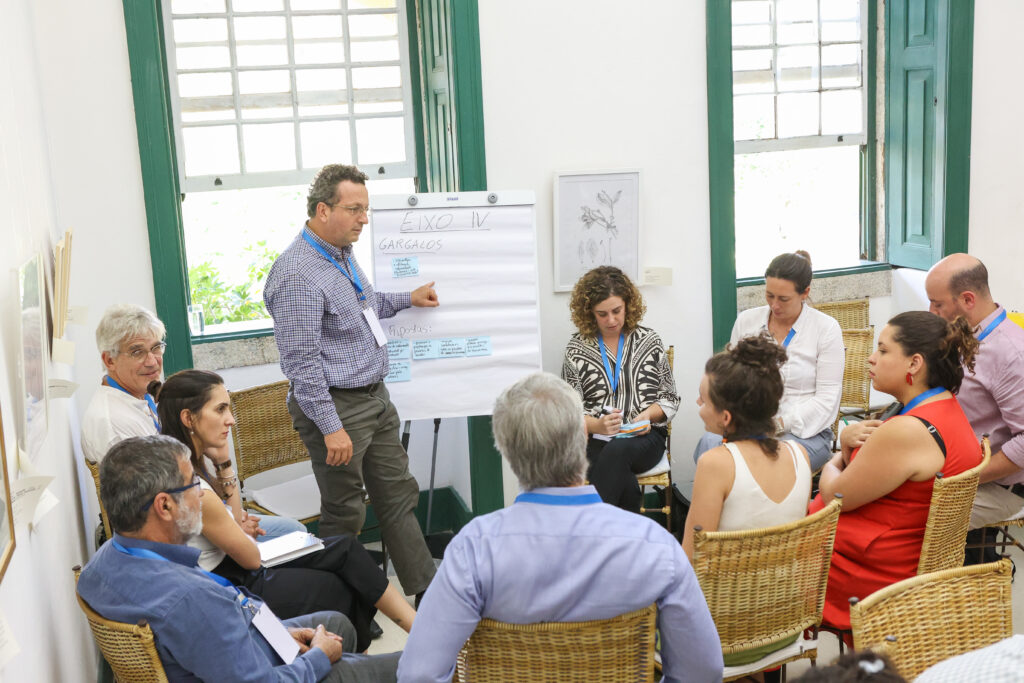
Workshops: Advancing Bioeconomic Financing
Afternoon workshops convened a hundred or so participants to address financing challenges for small producers and traditional communities, with discussions on governance, community participation, and stakeholder coordination. A recurring theme was the need to build trust and equity to shift the financial system toward sustainable bioeconomic models.
Looking Ahead
With the climate and environmental crises intensifying, innovative financing is critical for achieving a just, nature-positive economy. Insights from this event will inform discussions at upcoming international conferences, including UN Biodiversity COP16 (Cali) and UNFCCC COP30 (Belém).
Stay tuned for our COP16 agenda here.
Contact and more information
For media and communications enquiries, contact Jo Benn, Head of Communications at NatureFinance jo.benn@naturefinance.net

